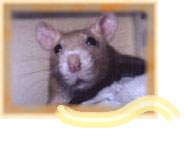 |
Syllabus 400:008 Sec. 4 Dr. Linda L. Walsh |
 |
|
2:00 MWF Sabin 103 |
 |
Syllabus 400:008 Sec. 4 Dr. Linda L. Walsh |
 |
|
2:00 MWF Sabin 103 |
| PROFESSOR: | Dr. Linda L. Walsh |
| Office: Baker 441 Office
Hours: 8:30 - 10:00 daily; other
Mailbox: Baker 334 times by appointment; drop-bys welcome. |
|
| Phone: 273-2690
Email: walsh@uni.edu
Homepage: www.uni.edu/walsh Messages may also be left on my office door or on my voice-mail. |
|
| T.A. | Ron Truelove |
| Phone: 222-6034 Email: truelor9253@uni.edu |
SUMMARY OF ASSIGNMENTS AND THEIR POINT VALUES*Course Description
Who Are You Sheet - Due 8/25.
Send me an email (walsh@uni.edu) (2 pt)
Library Scavenger Hunt (10 pts) - Due 8/30.
Introduction to PsycINFO - meet in library 2:00 Wed., 9/1.
Complete the Web Learning
Style Test . (6 pt) Due 9/3.
Use a web browser to access our online syllabus and click on the
Learning Styles Test in the syllabus. Write down or print your results
(2 pt) and write down what you think of those results (2). How might you
use this information to improve your learning this semester? (2 pt)
Brain Game Notes (5 pt) Due 9/13.
Come to class with organized notes on the parts of the nervous
system and brain and the behaviors/functions each part is related
to. Include the neurotransmitters mentioned in the class and
their links to behavior as well, and any additional brain areas in lecture.
Make yourself a sketch or 2 to remind you where the various brain areas
are located. You will use these notes to play the Brain Game, where you
will "diagnose" what part of the brain has been damaged based on the patients'
symptoms. Correct diagnoses will be rewarded and everyone who turns in
good notes will earn 10 pts.
Classical Conditioning Exercise (up to 10 pt): Due 9/22.
Identify the UCS, UCR, CS & CR in several classical conditioning
examples.
Reinforcement Exercise (up 20 pt) Due 9/24.
Identify the schedule of reinforcement in several operant examples.
Distinguish between positive and negative reinforcement and punishment.
PsycINFO Assignment: Locating psychological research. (12
pt) Due 9/27.
PsycINFO is a computerized database that keeps track of almost all
the books and journals (periodicals) related to the field of psychology
which our library makes available on the web. Your task is to fine 3 topically
related research reports available in our library.Turn in your search,
the abstracts of the 3 articles* and choose 1 to read more thoroughly.
Identify the what area of psych you think it represents (see Module
1) and the research method(s) you think are used (see Module 2).
Explain your reasoning. A handout is will be provided and trip to
library on 9/1 will demonstrate how to use the PsycINFO database. Tips
on Reading Research Reports
* Although its not required, it might make sense to
search for articles that support your position on your debate topic.
Sensation/Perception Jeopardy Notes (10 pt) Due 10/1.
Come to class with organized notes on the Sensation and Perception
Modules (Modules 5 & 6) . Make yourself a sketch or 2 to remind you
where the various brain areas are located. You will use these notes to
play the Brain Game, where you will "diagnose" what part of the brain has
been damaged based on the patients' symptoms. Correct diagnoses will be
rewarded and everyone who turns in good (complete)notes will earn 10 pts.
Debate (50) and Debate Reactions(30) - Due date will vary depending on topic.
Defense Mechanisms Exercise (up to 10 pt) Due 10/27.
Identify the defense mechanism operating in several examples.
What's My Psychopathology
(up
to 10 pt) Due 11/19.
Take notes on the disorders in Modules 22 and 23 in preparation
for an in-class game where you must identify the disorders portrayed in
case reports. Correct diagnoses will be rewarded and everyone who turns
in good notes will earn 10 pts.
Violating a Social Norm (up to 10 pt) - Due 12/10.
Choose a social norm to violate (but nothing illegal, unethical,
dangerous, or really offensive) and violate it a number of times in a variety
of settings.
Note the reactions of others as well as your own feelings. A handout
will be provided.
Experiment Participation or Research Methods Paper Alternatives: The other requirement in this class is research participation or paper alternatives. You will receive additional handouts on this component but 3 credits of participation and/or alternatives are necessary to fulfill this department requirement. Because of the diverse opportunities available these participations or alternatives do not carry a point value but are graded complete or incomplete. Keep track of your credits yourself (space is provided below): I will not receive the master attendance/credit list from our department office until the last week of the semester.
Record Your Research Participation or Alternatives Here:
Title
Time & Date
Location
What I Did
1.
2.
3.